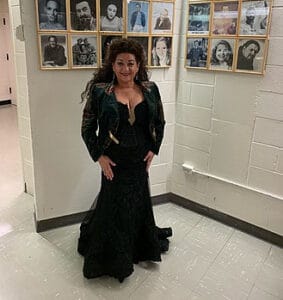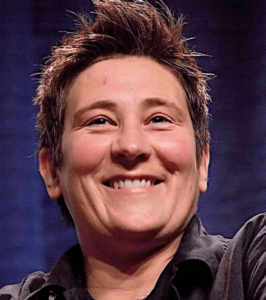Buffy Sainte-Marie is a groundbreaking Indigenous songwriter, singer, and social activist from Canada. With her impactful music and activism, she has been a pivotal voice for indigenous rights and issues for over half a century.
Early life
Buffy Sainte-Marie was born in 1941 in the Qu’Appelle Valley’s Piapot 75 reserve, Saskatchewan, Canada, to parents of Cree heritage. At the tender age of two or three, she became a victim of the Sixties Scoop – a governmental initiative that separated Indigenous children from their families, placing them with non-Indigenous families.
She found a new home with an American pair, Albert and Winifred Sainte-Marie, in Wakefield, Massachusetts. Interestingly, though outwardly Caucasian, Winifred identified with her partial Mi’kmaq heritage. Buffy pursued higher education at the University of Massachusetts Amherst, securing degrees in teaching and Oriental philosophy, and graduating with impressive academic accolades.
During a 1964 journey back to the Piapot Cree reserve for a traditional powwow, she experienced a warm welcome. Emile Piapot, Chief Piapot’s youngest son, and his spouse, Clara Starblanket Piapot, embraced her, further cementing her ties and significance within the native culture.
Buffy’s personal life saw multiple turns. In 1968, she tied the knot with a Hawaiian surfing instructor, Dewain Bugbee, but the union ended in 1973. Later, in 1975, she wedded Sheldon Wolfchild from Minnesota, with whom she had a son, Dakota “Cody” Starblanket Wolfchild. This marriage too did not last. Her next marriage in 1982 was to Jack Nitzsche, with whom she co-authored “Up Where We Belong”. However, their relationship was marred by control and abuse. Buffy believes that this tumultuous relationship played a role in stalling her professional growth during those years.
Buffy displayed a keen interest in the Baháʼí faith, not as a follower but as an active ally. She participated in various events associated with the faith, including the musical segment leading up to the 1992 Baháʼí World Congress and a video documentary where she discussed Baháʼí teachings. Additionally, she was featured in the 1985 video “Mona With The Children” by Douglas John Cameron. While Buffy respects the universal essence of religion, she hasn’t committed herself to any specific religious doctrine.
During her early years, Buffy faced challenges related to her Indigenous identity and the prevalent discrimination against Native people. These experiences deeply influenced her music and activism. She pursued her education at the University of Massachusetts Amherst, majoring in teaching and Oriental philosophy, which further shaped her perspective on the world and her place in it.
Career
In the early 1960s, Buffy Sainte-Marie burst onto the folk music scene, instantly distinguishing herself with her unique voice, indigenous themes, and the passion she exuded in every performance. Her debut album “It’s My Way!” in 1964 included tracks that would define her career, like “Universal Soldier,” which critiqued war and the draft, and “Cod’ine,” which talked about addiction.
Throughout the 1960s and 1970s, she became an influential figure in the folk and protest song arena. However, Buffy was more than just a musician; she was also an educator and activist. She used her platform to speak out against the mistreatment of Native Americans, advocating for their rights and shining a spotlight on the historical and ongoing injustices they faced.
Buffy’s innovative approach to music didn’t stop with folk. She explored electronic music, becoming one of the early adopters of the Buchla synthesizer, using it in her 1969 album “Illuminations.” Her versatility and pioneering spirit kept her relevant across decades and genres.
In addition to her solo career, Buffy wrote songs that became hits for other artists. Perhaps the most notable is “Up Where We Belong,” co-written with Jack Nitzsche and Will Jennings, which was performed by Joe Cocker and Jennifer Warnes for the movie “An Officer and a Gentleman.” The song won an Academy Award and was a global hit.
Buffy Sainte-Marie’s life and career are a testament to the power of art as a form of protest, education, and healing. Through her music and activism, she has made an indelible mark on the world, advocating for the rights and recognition of Indigenous peoples, and inspiring countless others along the way.
2010s Highlights:
- In 2015, Buffy Sainte-Marie released her album, “Power in the Blood,” which later secured the 2015 Polaris Music Prize.
- The same year, A Tribe Called Red created an electronic remix of her track, “Working for the Government”.
- In 2016, Sainte-Marie embarked on a North American tour with Mark Olexson, Anthony King, Michel Bruyere, and Kibwe Thomas.
- A year later, in 2017, she collaborated with Tanya Tagaq on the single “You Got to Run (Spirit of the Wind),” inspired by Alaskan dog sled racing champion, George Attla.
- In 2019, marking its 50th anniversary, her 1969 album, “Illuminations,” was re-released on vinyl by Concord Records.
2020s Highlights:
- 2022 saw the release of the documentary film, “Buffy Sainte-Marie: Carry It On,” directed by Madison Thomas.
- The same year, the National Arts Centre presented “Buffy Sainte-Marie: Starwalker,” a tribute concert showcasing various artists performing her songs.
- In 2023, Buffy Sainte-Marie announced her decision to retire from live performances due to health issues.

Net Worth
Through album sales, performances, songwriting royalties, and other ventures, she has accumulated a notable net worth, reflecting her decades of contributions to the music industry. Her estimated net worth in 2023 is around $3 million.
Achievement
Over the span of her career, Buffy Sainte-Marie has received numerous awards and recognitions. A few notable achievements include:
Related Bios

Sharon Azrieli
Sharon Azrieli is a soprano singer, and cantor from Montreal, Quebec. Azrieli performs classical, operatic, and musical ...
Read More
Mylène Farmer
Mylène Farmer, whose birth name is Mylène Jeanne Gautier, is a French singer, songwriter, occasional actress, writer, ...
Read More
Robbie Robertson
Robbie Robertson, born Jaime Royal Robertson, is a renowned Canadian musician. He gained recognition as the lead guitari...
Read More

